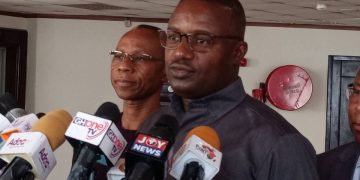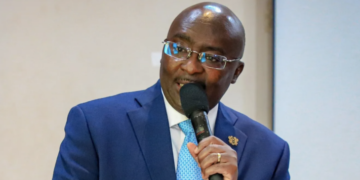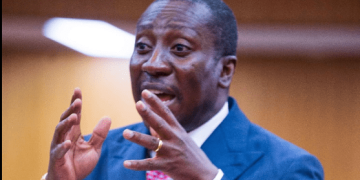Ghana has commenced the second round of talks on its $13 billion external debt restructuring programme with bondholders.
The second round of talks between the Government and bondholders is purported to have begun this week.
The two sides began direct negotiations after entering into non-disclosure agreements on Tuesday, people familiar with the matter said, asking not to be named because the talks are confidential.
According to Bloomberg, the government last week sent a new proposal to advance the second round of talks.
Bondholders this week went “restricted,” meaning the talks with the government are covered by temporary trading limitations because the topics under discussion may be market sensitive.
Members of the international creditor committee control approximately 40% of the outstanding notes. A steering committee for the group includes representatives from Abrdn, Amundi (UK) Ltd, BlackRock and Greylock Capital Management.
An agreement in principle may be announced soon, two of the people said without providing details.
A first round of negotiations stalled in April because a restructuring proposal breached the International Monetary Fund’s debt sustainability parameters.
The bondholders are now working with updated information on the country’s macro-framework from the IMF. Ghana secured an agreement with the Washington-based lender on the second review of the $3 billion program and the IMF’s executive board is set to meet on June 28 to vote on the review.
The new debt sustainability analysis is expected to show that Ghana’s economy grew faster than anticipated, which would allow for more space for the debt restructuring proposal to meet the IMF’s requirement. That could potentially facilitate the talks amid a reduction of the financing needs, as Bloomberg reported in May.
A deal with bondholders is one of the remaining parts of a sprawling effort by Ghana to restructure almost all of its $43.6 billion of debts, after it stopped making payments on external obligations in late 2022. The government is working to finalize the debt rework before general elections in December.
Separately, the world’s second-biggest cocoa producer reached a deal last week with bilateral creditors, including France and China, to provide relief on $5.1 billion of debt.



















































































